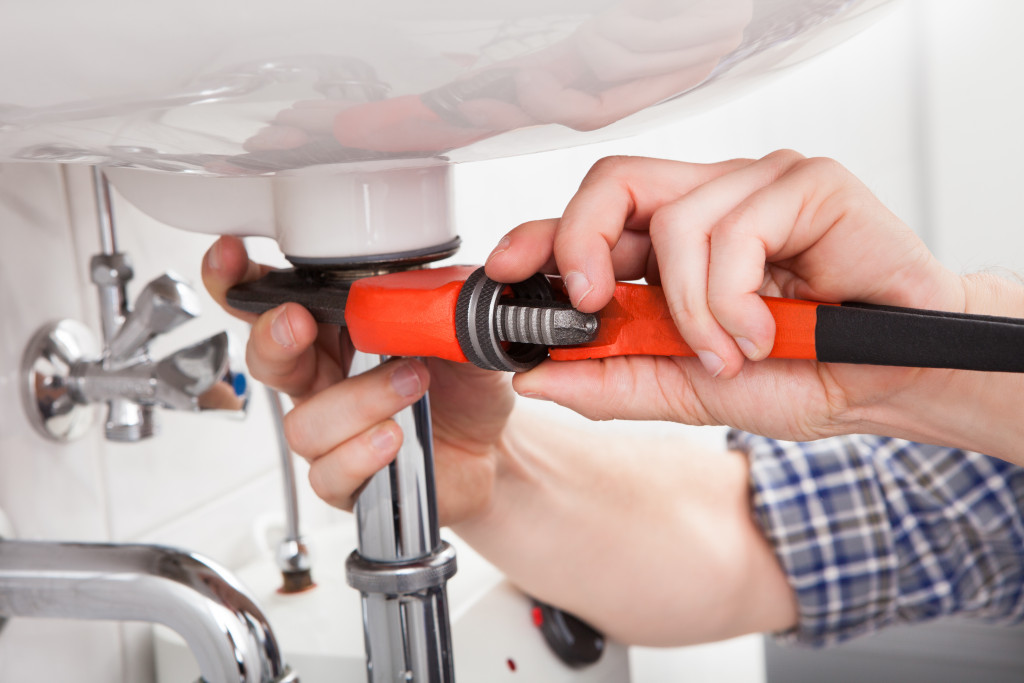- Starting a plumbing business can be rewarding and lucrative if done right.
- Master your skills, obtain necessary licensing, and comply with local regulations.
- Develop a comprehensive business plan that outlines your target market, pricing, budget, and marketing strategies.
- Invest in quality tools and modern technology to streamline operations and attract clients.
- Prioritize exceptional customer service to foster trust and loyalty.
Launching a plumbing business can be rewarding and lucrative, especially if you’re passionate about the trade and possess an entrepreneurial spirit. While the demand for reliable plumbing services remains consistent, creating a successful venture involves careful planning, dedication, and strategy. Here’s a guide tailored just for you to pave the way for a thriving plumber business.
1. Master Your Craft and Obtain Necessary Licensing
The quality of your service will be the cornerstone of your business. Hence, mastering your plumbing skills is imperative.
It’s not just about knowing how to fix a leak; it’s about staying updated with the latest plumbing technologies, understanding different types of installations, and mastering the art of troubleshooting.
If you’re not already a certified plumber, consider enrolling in a reputable plumbing school or seeking apprenticeships to hone your skills. Once you’ve garnered adequate experience, obtain the necessary licenses and permits. Regulatory requirements can vary by region, so ensure you comply with local regulations to avoid legal hassles.
2. Develop a Comprehensive Business Plan

Behind every successful business is a well-thought-out plan that charts the course for growth.
Start by defining your target market. Are you focusing on residential clients, commercial businesses, or both? Next, consider your service pricing. Will you charge by the hour or job or offer package deals?
Also, draft a budget, considering startup costs, operational expenses, and expected revenue. This will be your roadmap, guiding you through the initial stages of your venture. And don’t forget about marketing! Identifying how you’ll attract and retain customers is paramount.
3. Invest in Quality Tools and Modern Technology
High-quality tools simplify your job and ensure longevity and fewer breakdowns, translating into fewer interruptions and higher customer satisfaction.
Investing in the best tools you can afford will pay off in the long run. Additionally, consider implementing software solutions for appointment scheduling, invoicing, and customer management in this digital age. Embracing technology will streamline your operations and make your business modern and efficient, appealing to a broader range of clients.
4. Prioritize Exceptional Customer Service
In the service industry, customer satisfaction is the bedrock of success. And in plumbing, where emergencies are common, responsiveness and reliability become even more crucial. Remember, a happy customer is often a repeat customer and can become a brand ambassador for your budding business.
Communicate Effectively
Clear communication is often the key to successful customer interactions. Take the time to explain your services, answer any questions, and provide clear, up-front pricing. This establishes transparency and helps alleviate any apprehensions your customers may have.
Offer Competitive Pricing

While quality service is a priority, offering competitive pricing is also essential. Research the market to understand what your competitors are charging and aim to provide better value for money. Remember, customers tend to equate value with both quality and cost.
Provide After-Sale Support
After-sale support is crucial when you’re in the plumbing business. Insure your customers by offering guarantees or warranties on your work. This demonstrates confidence in your work, provides customers with a sense of security, and builds trust.
Train Your Staff
Lastly, invest in training your staff. A well-trained team provides better service and contributes to a positive customer experience. Regular training opportunities can enhance staff skills, motivate employees, and ensure your team is up-to-date with industry standards and practices.
5. Stay Updated and Continuously Upgrade Skills
The plumbing industry, like many trades, is continually evolving. New technologies, techniques, and best practices emerge regularly. To stay ahead of the curve, continuous learning is essential.
Consider attending workshops, webinars, and trade shows. This will keep you updated and expand your network, opening doors to new opportunities and collaborations.
Holding certifications like the CSCS card in the UK can also enhance your credibility. So, if you’re aiming for that competitive edge, make it a point to receive your professional CSCS plumber card without delay. A CSCS card can also improve your chances of securing contracts with larger organizations and government agencies, giving you a leg up on the competition.
In Summary
Starting a plumber business, while challenging, can be immensely satisfying. As you embark on this journey, remember that consistency, dedication, and adaptability are key. Emphasize quality in every aspect, from the tools you use to the service you provide. With the right strategies and an unwavering commitment to excellence, your plumbing venture is poised for success in the bustling marketplace.

